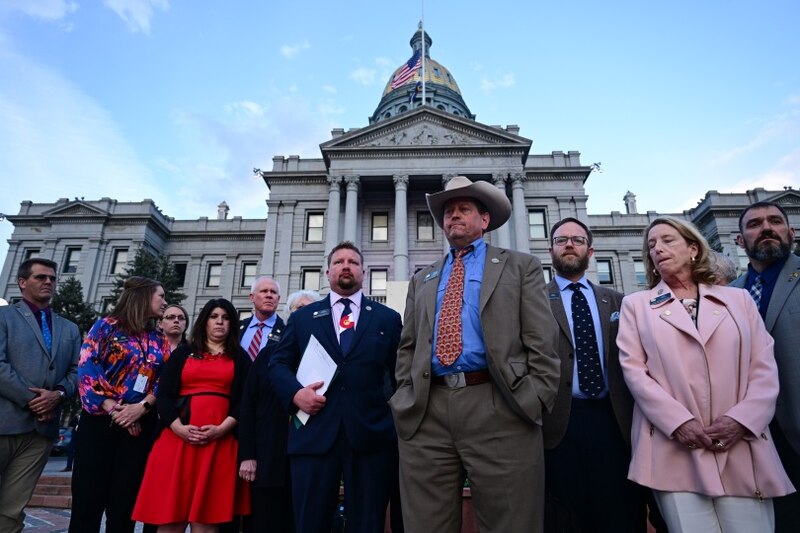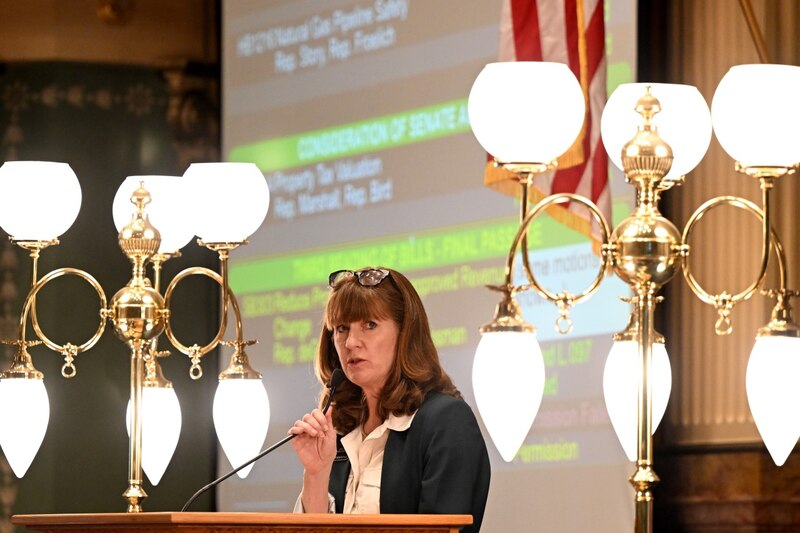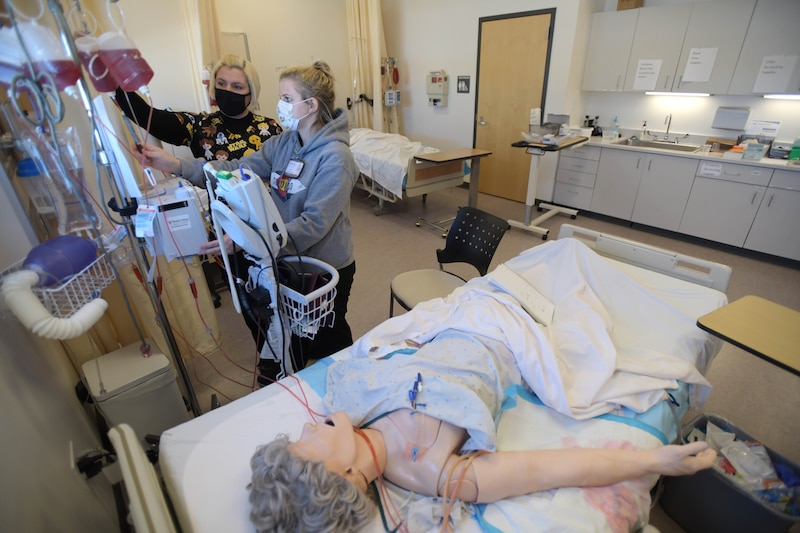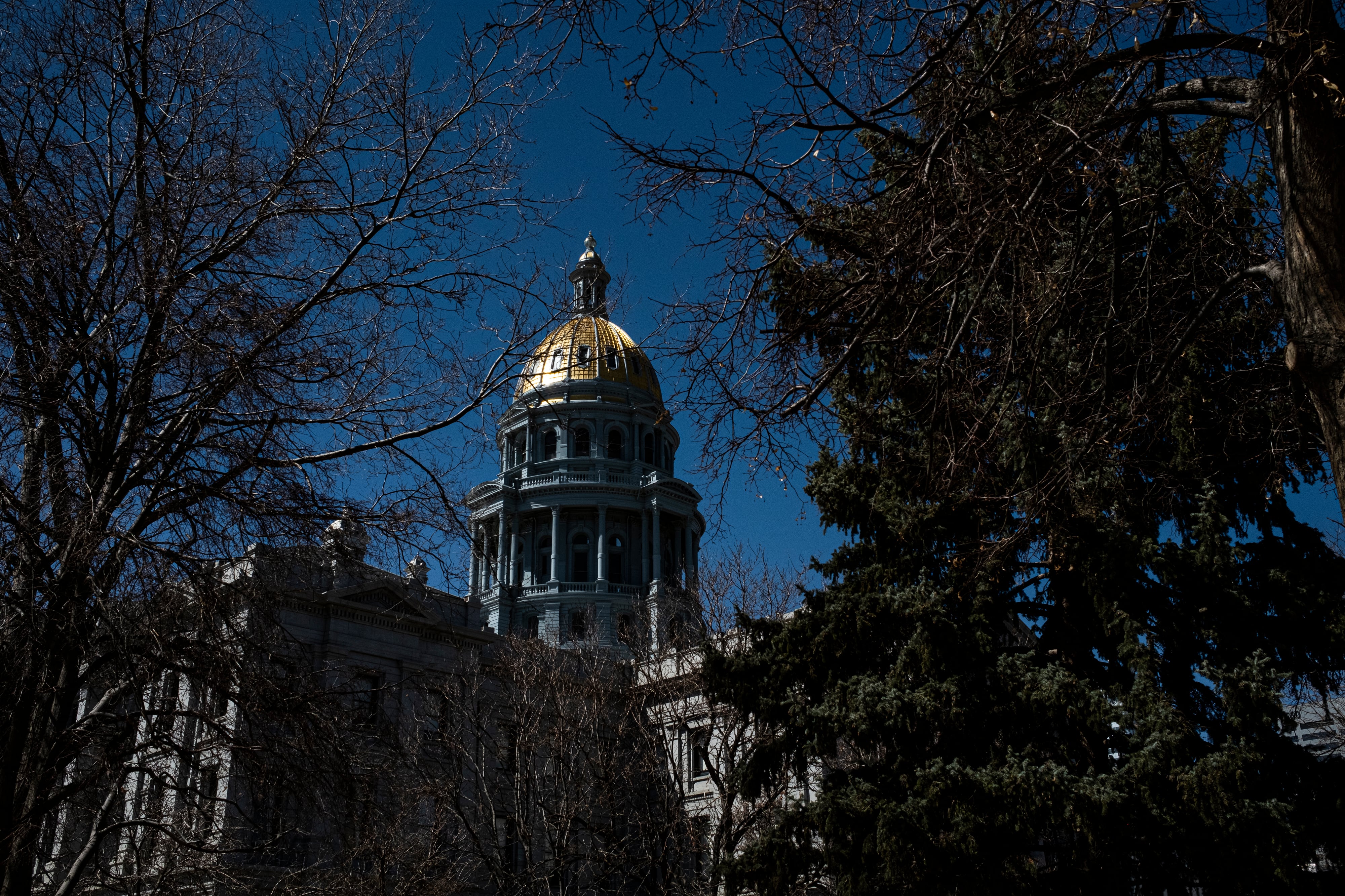Colorado’s K-12 schools got a major funding increase. Younger students should get more help with math learning, and older students should have more ways to get a free college education.
And long-standing areas of education policy debate — how to more fairly distribute money among schools and how to determine what makes a good school — will get the focused attention of dedicated task forces that could recommend changes to future lawmakers.
When the 2023 Colorado General Assembly concluded its work this week, education stood out as an area of relative consensus and modest progress, in sharp contrast to heated debates over gun control, crime, housing, and tax policy that saw progressives frustrated and conservatives alike disappointed and disillusioned.
Education had its contentious moments as well. Republicans argued that a bill to expand mental health assessments in schools risked trampling on parental rights. Legislators scaled back a bill to give far more protections to students facing expulsion. A bill to promote universal screening for dyslexia, a common learning disability, never even got a hearing.
But overall, advocates across the spectrum rated education a bright spot this session.
“It is pretty remarkable when you can peel away the drama of the session,” said Jen Walmer, Colorado state director of Democrats for Education Reform. “There were real wins for kids.”
State Rep. Don Wilson, a freshman Monument Republican, said that education issues felt less politically charged.
“We did have a bunch of party-line votes, but there was good discussion about them and I really appreciate that from my fellow committee members,” he said.
With so many bills convening task forces — there also will be groups working on transportation and student discipline — the 2023 session could tee up bigger debates ahead or see the status quo win out.
“We have all these opportunities to talk about where we want our education system to go,” said Brenda Dickhoner, president and CEO of the conservative education group Ready Colorado. “We have this moment where we could choose to do better for our kids, but I’m also worried we’ll keep doing the same things.”
Here are some of the big education issues lawmakers tackled during this year’s session.
School funding
Lawmakers approved a budget and school finance act for 2023-24 that raises per-pupil spending to $10,614, up by more than $1,000 from this year. Legislators also wrote into law a promise to fund education according to constitutional requirements starting in the 2024-25 budget year. That would mark the end of the 13-year practice known as the budget stabilization factor, under which lawmakers held back more than $10 billion from K-12 schools to pay for other budget priorities.
At the same time, a last-minute property tax relief measure contains provisions that Democrats say will shore up school funding over the long-term.
“We made huge progress this year,” said Senate Majority Leader Dominick Moreno, a Commerce City Democrat. “Buying off the B.S. factor completely is within striking distance. I think we’re going to be able to do that next year.”
Moreno said Proposition HH also would allow the state to better fund higher education by relieving budget pressures to cover K-12.
The tax package came together in the final days of the session, and Republicans balked at what they described as an excuse to undermine the Taxpayer’s Bill of Rights. In the House, the entire GOP caucus walked out rather than vote on the measure.

State Sen. Barbara Kirkmeyer, a Brighton Republican, said Democrats need to prioritize education first, rather than one priority among many, and that it will be easier to hold schools accountable for outcomes when they have more resources.
“When we have 60% of our third graders not being able to read at the third grade level, 70% or so of our eighth graders, not being able to do math at the eighth grade level, we need some accountability here, and we need to start to figuring out how we’re going to get our kids educated so that they can succeed,” she said.
Lawmakers raised special education funding to meet promises made in 2006, put aside money for capital construction grants in cash-strapped districts, and promised an extra $30 million just for rural districts.
Legislators also increased funding for state-authorized charter schools and promised to fund them next year at the same level as their district-authorized counterparts, which benefit from local revenue sharing.
Amie Baca-Oehlert, president of the Colorado Education Association, the state teachers union, said she hopes additional funding translates into higher teacher pay, smaller class sizes, and more mental health support for students.

But lawmakers put off any major changes to the school funding formula — how the state distributes money to schools.
Some advocacy groups lamented that Colorado missed an opportunity to send more money to districts that serve more students in poverty, but Bret Miles, who leads the Colorado Association of School Executives, said the proposed changes were coming too fast and presented too many complications.
“It’s a big ship to turn,” Miles said. “It doesn’t turn on a dime.”
There’s always next year. The school finance act commissions a study to determine at what level Colorado should fund its schools and a task force to determine how that money should be distributed.
Walmer said she is optimistic the task force will be less political than a previous legislative committee. Miles said he also expects the state to be able to increase funding in future years — and a larger pie is always easier to divide in new ways.
School safety and student discipline
Lawmakers faced pressures this session to address gun violence and school safety after the horrific shooting in Uvalde and, closer to home, the Club Q shooting in Colorado Springs, which raised questions about the effectiveness of Colorado’s new “red flag” law.
Two shootings outside Denver’s East High School and another inside the school building that wounded two deans and ended with the death by suicide of a student highlighted the steady toll of community gun violence.
Students repeatedly walked out of East High and rallied at the Capitol for better gun control.

Lawmakers banned ghost guns, raised the age to purchase firearms to 21, created a three-day waiting period before gun purchasers can take possession, and added educators to the list of people who can ask that someone’s guns be temporarily removed in response to a safety threat.
Lawmakers also created an Office of School Safety to bring various services under one roof and improve coordination and communication among state agencies and school districts.
Concerns about rising youth violence hampered efforts to reform school discipline, as some educators and administrators pointed to the shooting at East as an example of why traditional schools should exclude some students. Lawmakers also decided to continue to allow children as young as 10 to be arrested and prosecuted.
Nonetheless, lawmakers passed some protections for students facing expulsion. Under House Bill 1291, hearing officers would have to learn about trauma and disability and how those can affect student behavior, and school districts will have to adopt policies that consider alternatives to expulsion.
And Senate Bill 29 would convene a task force to make recommendations to reduce disproportionate discipline.
Colorado lawmakers also banned corporal punishment in schools. The practice did not seem to be widespread in the state, but lawmakers and advocates wanted to send a message that it’s never OK to hit a child.
Student mental health
Colorado would provide more funding and support for schools to implement universal mental health screening in schools under House Bill 1003. The goal is to identify problems and provide support early, before children are in crisis.
Colorado had a high youth suicide rate before the pandemic. In 2021, doctors at Children’s Hospital Colorado declared a youth mental health emergency, and educators consistently report mental health as a top concern for students.
Lawmakers also took steps to ease severe shortages of counselors, social workers, and other mental health professionals. Senate Bill 4 will expedite licensing to work in schools.
Math instruction
House Bill 1231 would invest more than $27 million in math learning, which saw particularly concerning declines in the wake of pandemic learning disruptions. Most of the money will go to teacher training and afterschool tutoring.
Teacher training programs will be asked to make sure teachers understand best practices and recent research in math instruction, preschool teachers will be asked to do more to build early foundations, and schools facing state intervention for low academic performance will have to show what steps they’re taking to improve math learning.
Schools will be encouraged to talk to parents more and make training available to them so they can better support students at home.
But the bill stops short of the widespread mandates that have characterized Colorado’s approach to improving reading instruction.
Some advocates said they would have liked Colorado to go further, but most said they hope a voluntary approach builds buy-in and puts resources toward teachers and schools eager to do better.
College access
Few issues brought lawmakers together this session like college access.
In a bipartisan rollout in March led by Gov. Jared Polis, lawmakers outlined proposals to expand free training to students for in-demand fields at the state’s community colleges and scholarships for graduates of the Class of 2024.
House Bill 1246 opens free college for students training in early childhood, education, law enforcement, firefighting, forestry, construction, and nursing.
The $45 million program targets careers with high social value but not necessarily high salaries.
Senate Bill 205 would spend $25 million for scholarships for up to $1,500 for students in the Class of 2024 who attend college, join an apprenticeship, or train in an in-demand job.
Democrats and Republicans agreed to allow universities to enroll more out-of-state students if the institutions provide more merit aid to Colorado students.

Senate Bill 96 primarily impacts the University of Colorado Boulder and the Colorado School of Mines, which enroll more out-of-state students. The state requires schools to enroll 55% of their students from Colorado. Schools get to count some of those students twice if they get certain institutional aid, allowing schools to enroll more out-of-state students. The bill already signed by the governor allows schools to now double count up to 15% of its students who get more institutional aid toward the in-state enrollment cap.
Lawmakers voted mostly in lockstep to increase options for adults who never finished high school, ensuring they have a path to continue their education or get better jobs.
Senate Bill 7 would triple state spending on adult education programs to $3 million a year and will add a digital literacy requirement. The bill also would allow colleges to award high school diplomas to adults.
Senate Bill 3 would create the state’s first high school for adults. The $5 million program will support students, including paying for courses, child care, and transportation.
Teacher shortages
Lawmakers passed three laws addressing teacher shortages.
Last school year, about 440 of the 5,700 open teaching positions went unfilled for the entire year. The number of positions that end up without a teacher has also grown.
The laws this year expanded on work in 2022, when lawmakers expanded loan forgiveness programs and made it easier for retired teachers to get back into the classroom.
House Bill 1001 broadens the state’s loan forgiveness program to include principals and special service providers to apply. The state also has a shortage of special service providers.
The bill also raises the income levels eligible for the $52 million program. The program provides up to $22,000 in stipends to student teachers and $5,000 in loan forgiveness to those who stick it out. Student teachers who work in other states in some circumstances now are allowed to apply to the program.
The state also created an apprenticeship program for teacher candidates. Senate Bill 87, which has been sent to the governor, would cost more than $120,000 a year and allow undergraduate education majors to work as student teachers or substitutes while they earn their bachelor’s degree.

House Bill 1064 will allow teachers licensed in another state to more easily obtain a Colorado license. The Interstate Mobility Compact will allow states to share disciplinary information and require background checks. The compact only goes into place if 10 states agree to join the compact. In January, seven other states were working to approve an agreement to join the compact.
Baca-Oehlert said Senate Bill 111, which provides some workplace protections for teachers, would also help with hiring and retention. Fear of retaliation and political interference is a major reason teachers consider leaving the profession, she said.
School accountability and testing
Groups along the education politics spectrum united to support House Bill 1241, which would create a task force to recommend changes to Colorado’s school accountability system.
The school accountability system rates schools largely based on test scores, and schools that report low performance for five years or more face state intervention. Education reform advocates believe the system is imperfect but provides critical insight into how schools are serving students and where improvement is needed. Many school administrators and educators see it as punitive and overly simplistic and say it pushes schools away from art, music, career, and other educational experiences.
Bills to scale back standardized testing failed. Facing opposition, the sponsors withdrew House Bill 1239, which would have ordered the state to seek federal waivers to testing requirements and encouraged more local experimentation in assessment.
In the final days of the session, a bill to eliminate the social studies standardized test given to fourth and seventh graders also died without a vote, despite seemingly widespread support. Advocates said the release of national test scores that showed concerning drops in students’ social studies and civics knowledge led lawmakers to hesitate to end the state’s own tests in those subjects.
Jason Gonzales is a reporter covering higher education and the Colorado legislature. Chalkbeat Colorado partners with Open Campus on higher education coverage. Contact Jason at jgonzales@chalkbeat.org.
Bureau Chief Erica Meltzer covers education policy and politics and oversees Chalkbeat Colorado’s education coverage. Contact Erica at emeltzer@chalkbeat.org.







